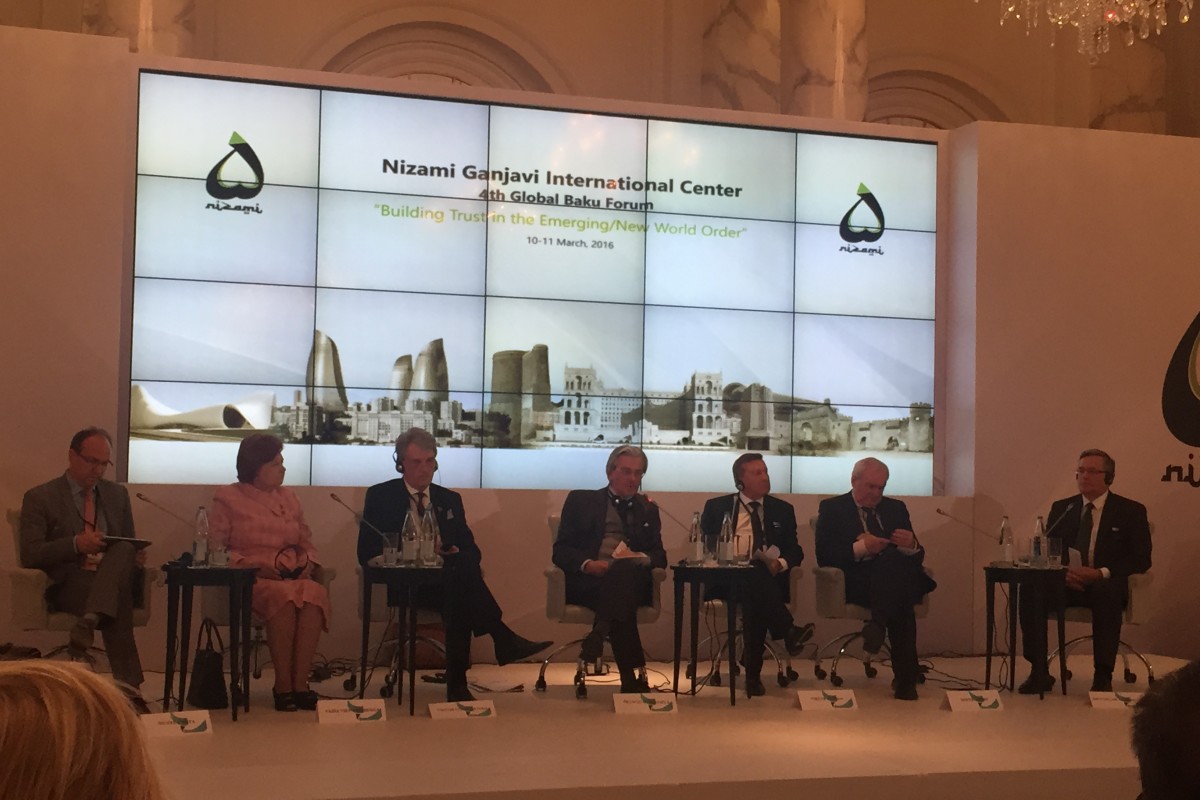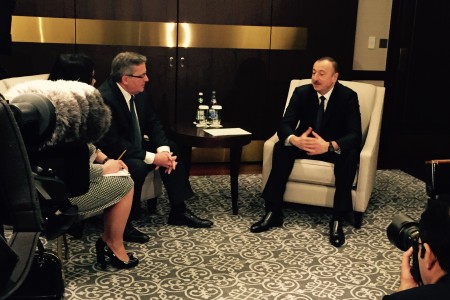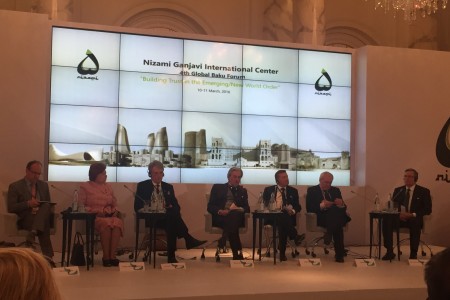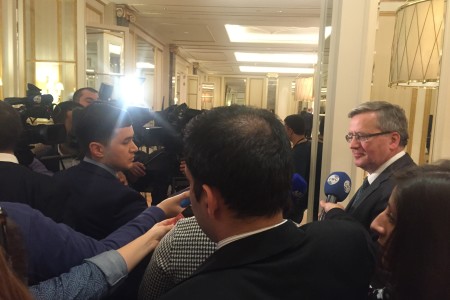On the 10-11 March 2016 Bronisław Komorowski takes part in the Baku Forum 2016 organized by the Nizami Ganjavi International Center.
Bronislaw Komorowski met with president of Azerbaijan Ilham Aliyev, President of the Republic of Azerbaijan. They discussed a number of projects of bilateral interest and reconfirmed their will to will to enhance cooperation and dialogue.
Over 70 former and current world leaders gathered in Baku to discuss issues of top priority such as the future of Russia-West relations, the threat of radicalisation, the promise of reconciliation, the role of women in peace leadership, or the use of energy security and inter-faith dialogue as enhancers for dialogue.
Ukraine as a watershed for regional security is the topic of Bronisław Komorowski’s intervention during the Baku Forum. Among the panellists are:
Bertie Ahern, Prime Minister of Ireland (1997-2008),
Daniel Ioniţă State Secretary, Ministry of Foreign Affairs of Romania,
Francis O’Donnell, Ambassador, Irish Institute of International & European Affairs,
Vaira Vike-Freiberga, President of Latvia (1999-2007) and NGIC Co-Chair,
Viktor Yushchenko, President of Ukraine (2005-2010),
Viktor Zubkov, Prime Minister of Russia (2007-2008; 2012)
As it enters its second year of war in the East, Ukraine is now faced with a sharp reduction of international attention in the wake of global terror attacks. Yet, having fallen from the list of key conflicts to watched in 2016, the Ukrainian conflict poses today the same threats to international security it posed a year ago, having shaped the relations between the European Union, the United States, and Russia. In a time where cooperation will prove so important for global stability, Western and Eastern powers remain to resolve a conflict at the heart of Europe.
The Ukrainian crisis, although less visible in global media and public debate because of the challenge posed to Europe by the migration crisis, continues to be an important factor for safety and security of Central and Eastern Europe.
It cannot, however, be considered as a phenomenon detached from other issues shaping the contemporary security environment. The reason for this is not only the fact that Poland as well as its neighbours function in globalized world, melded by mutual dependencies and connections, which leaves no one unconcerned by the crises happening even in the farthest regions. It is also because the pillars of Poland’s safety and security, namely NATO, the European Union and individual countries (like, for example, the United States) must allocate their assets and capabilities considering all of the factors that can affect the stability of the international community.
Thus, endeavours undertaken in connection with the Ukrainian crisis must be planned in such a manner that takes in account the migration crisis and its political consequences. Moreover, in countering both of those crises, we should take into consideration threats stemming from activity of such geographically distant actors as the Islamic State and North Korea, which is developing its nuclear potential.




